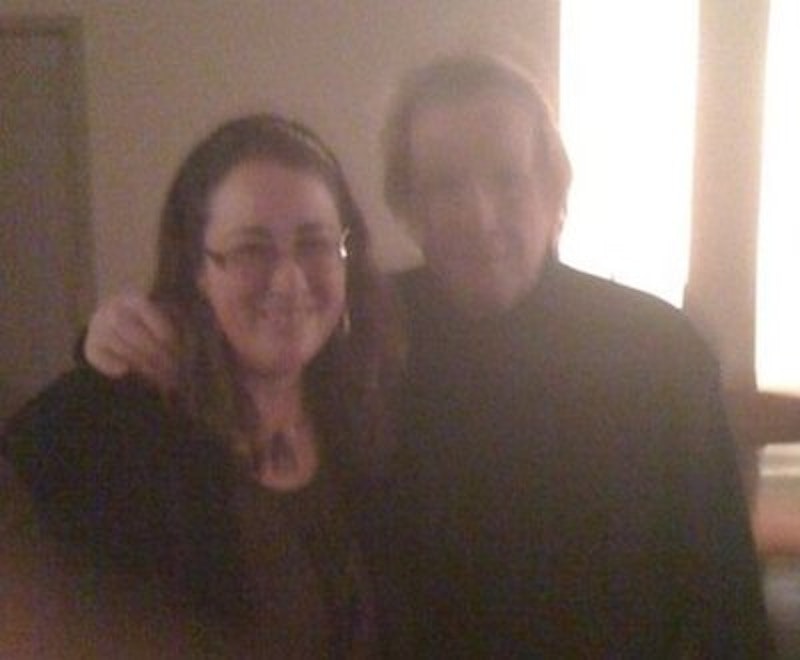There was no reason I should be interviewing Don McLean, the singer/songwriter of one of our nation’s most familiar songs, “American Pie.” As we know, the hit, written and recorded by McLean in 1971, is the story of the plane crash that killed Buddy Holly, Richie Valens, and the Big Bopper. A few years back, as editor of a family magazine in Maryland, I randomly stumbled across the opportunity to see a McLean concert and meet him afterwards. I was thrilled to be able to hear the song live and the venue was great: the art deco Avalon Theatre in Easton, Maryland was built in 1921, an intimate yet majestic space: acoustically perfect for a guy playing a guitar on a stool.
I was terrified to meet McLean. For weeks, I obsessed over what I’d say to him; I knew I’d only have a few minutes. Musical ignorance just added fuel to my fear of the meeting. Knowing the lyrics to “American Pie” by heart (and the fact that he and my dad both attended Villanova University for a period of time) was about as close as I was to a connection to McLean. But who doesn’t know the lyrics?
Luckily, I have a teenage daughter, 16 at the time, who really likes music. She used to work in a record store and owns over 300 vinyl record albums: everything from Johnny Cash and Bob Dylan and the Smiths to the Beatles, you name it. The day before the concert, I asked her for advice. I’d browsed the Internet for hours, reading stories about McLean, studying his website, researching what I could about him to look for ideas of what to ask, knowing it might only be a question or two. Just ask him about the music, she said. What music? I asked her. She rolled her eyes. The music today, she said. What he thinks of it.
I thought that seemed like a strange question. In my notebook were six or so questions. What did he think of covers of his song? What were some of his thoughts on interpretations of the “American Pie” lyrics over the years? Was he tired of singing it? What was it like to have his first album rejected 72 times by record labels? Would he release a new album?
The concert was perfect. After telling a story about his vintage guitar being broken by the airline on his way to Maryland and how he was using one supplied by the guitar maker at the very shop where my daughter worked, he played a few songs (I love “Vincent,” was thrilled he sang “And I Love You So.”) Before singing “American Pie,” he deadpanned, “We’re going to sing a few from the American Pie album. The people seem to like that one.”
In my hand I had a vintage copy of that American Pie album. It wasn’t in the greatest condition, but it was what we could find at my daughter’s record store, and I brought a Sharpie, figured I’d ask him to sign it for her. I held the album and my notebook when everyone was gone from the theater and faced McLean for the first time. My husband stayed off to the side, perusing celebrity musician headshots on the walls of the historic theatre, offering mental support.
McLean looked tired. Age 65 at the time, I wondered if it was from touring. He didn’t look like he was in the mood to talk to anyone, least of all me. I thought opening my notebook to a list of questions would annoy him. So I took a deep breath, smiled, told him I didn’t want to take too much of his time, and that just wondered what he thought of music today: the question my 16-year-old had suggested.
His face lit up at the question.
“I don’t think it’s music,” he said. “For it to be music, you have to have harmony, and melody and lyrics.” He elaborated on the point, my hands were shaking and I managed in the five minutes he spoke to write down exactly two sentence-long quotes. He was animated, in my notes I scribbled “expression of some sort,” “loss of arts,” “sign of social breakdown.” He was brilliant and passionate and poetic; there was a depth of emotion in his eyes, tired though they seemed. I listened and watched him more than I wrote.
“They wouldn’t know a good song if they heard one today,” said McLean; the other sentence I managed to transcribe.
I thanked him, told him (because he’d mentioned being inspired by Frank Sinatra) I’d grown up listening to Sinatra. McLean put his arm around me as we walked toward my husband, who managed to get a grainy, pre-iPhone photo, and smiled at him while pointing to me. He said, “This one loves music. I can tell.”
I clutched the signed 1971 album, the only thanks I had to offer my 16-year old, who had every right to tell me she told me so.

